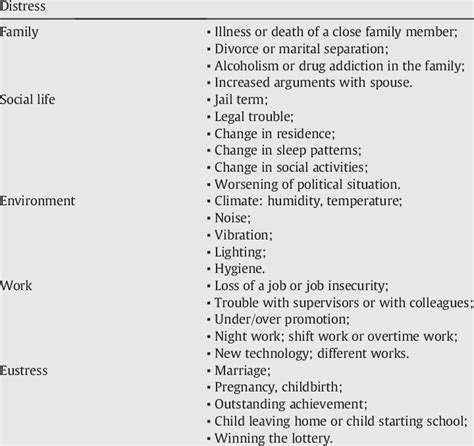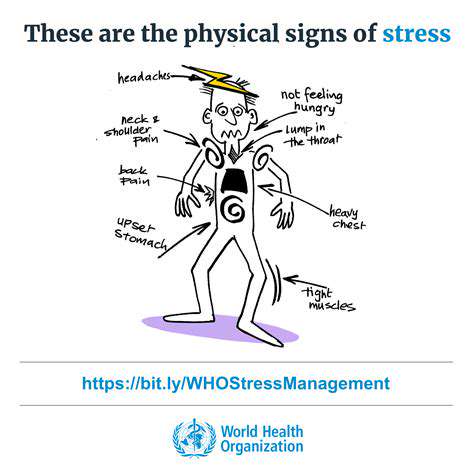Stress Impacts on Aging Canines: Recognizing and Managing Stress in Elderly Dogs
Factors Contributing to Stress in Elderly Dogs

Environmental Changes
Environmental stability is crucial for elderly dogs. Changes in their surroundings can lead to increased stress levels. Factors such as moving to a new home, rearranging furniture, or having new family members can be unsettling. These changes can disrupt their familiar routines and comfort zones. It’s important for pet owners to minimize such disturbances when possible to help reduce anxiety.
Additionally, the introduction of new pets can significantly impact an elderly dog's stress levels. They may feel threatened or anxious by the presence of a younger, more energetic animal. This disruption in their social environment can lead to behavioral issues or withdrawal. Providing separate spaces and gradual introductions can be effective strategies to ease tension.
Regular exposure to loud noises—like storms, fireworks, or construction—can also stress older dogs. They may experience heightened anxiety due to decreased hearing capabilities, which makes sudden sounds jarring. It is vital for owners to create a safe space where their dogs can retreat during noisy events.
Changes in routine, such as alterations in feeding times or walks, can contribute to stress as well. Elderly dogs thrive on consistency, and variability can disrupt their sense of security. Keeping a stable daily schedule helps in reducing stress and maintaining their emotional well-being.
Lastly, the presence of unfamiliar people in their environment can create anxiety. Older dogs may feel unsure or threatened, prompting defensive behaviors. Gradually familiarizing them with guests or having guests offer treats can assist in managing their stress response.
Health Issues and Pain
Health problems are common in aging dogs and can be significant contributors to their stress levels. Chronic pain from conditions like arthritis can lead to increased irritability and anxiety as they struggle to adjust to their limitations. Recognizing signs of pain and addressing them promptly is crucial for the quality of their life.
Veterinary care, including pain management and regular check-ups, is essential for minimizing discomfort. Sometimes, stress can manifest itself in physical symptoms, such as loss of appetite or lethargy. Thus, understanding the connection between stress and health is fundamental for caregivers.
Moreover, cognitive dysfunction syndrome (CDS) is a common disorder in older dogs, leading to confusion and behavioral changes. It can create significant stress, making familiar tasks or environments seem daunting. Providing mental stimulation and maintaining a routine can help mitigate the effects of CDS.
Digestive issues related to aging can also increase discomfort and stress. Older dogs may experience gastrointestinal problems that lead to anxiety about eating or elimination. Caregivers should monitor their dog's diet closely, ensuring it meets their nutritional needs without causing distress.
In some cases, hormonal changes can affect mood and behavior in aging dogs. A comprehensive health assessment can identify these issues, allowing for appropriate treatments to lower stress and improve overall well-being.
Social Isolation and Changes in Family Dynamics
As dogs age, they might experience loss, whether that's the passing of a companion animal or changes in family dynamics. These events can significantly impact their emotional health and lead to feelings of loneliness and insecurity. Therefore, recognizing the importance of companionship becomes vital for their well-being.
Furthermore, elderly dogs may find it harder to interact with younger animals, which can lead to social withdrawal. Encouraging gentle interactions and monitoring playtime can foster a positive social environment, making the older dog feel safer and more accepted.
Moreover, the lifestyle of family members can affect an elderly dog's socialization. A busy household with limited interaction can lead to feelings of isolation for the dog. Engaging them in daily activities and providing them with love and attention can make a big difference.
It's also essential to maintain consistency in family interactions. Changes, like children leaving for college or family moving in or out, can disrupt the dog's sense of security. Providing the dog with familiar activities and routines amidst these transitions is important to alleviate stress.
Lastly, some elderly dogs may benefit from canine companions or certified therapy animals that provide emotional support. This can help foster interaction and improve their social capabilities, reducing feelings of isolation and anxiety.
Behavioral Changes and Stress Responses
With age comes the potential for behavioral changes that can be rooted in stress. Many older dogs display signs of anxiety, such as pacing, excessive barking, or destructive behavior. Understanding these behavioral shifts is key to identifying the underlying sources of stress.
Some elderly dogs may develop nervous habits, such as licking or chewing, as coping mechanisms for their anxiety. Addressing these behaviors with patience and training can help redirect their focus and manage their stress more effectively. Positive reinforcement techniques can be beneficial in teaching them alternate behaviors.
Additionally, the onset of separation anxiety can affect older dogs, especially when they have been loyal companions for years. They may become distressed when left alone for even a short time. Gradual desensitization to being left alone and creating a comfortable, reassuring environment can be effective strategies.
As dogs age, they may also become more wary of unfamiliar situations or people. This heightened anxiety can lead to growling or snapping, which can be alarming for owners. Caregivers should work on desensitizing their dogs to new experiences in a controlled and positive manner.
Owner awareness is key to managing these behavior changes. Observing triggers and potential stressors allows owners to create a more supportive environment that promotes calmness and stability.
Nutrition and Lifestyle Adjustments
Proper nutrition plays an integral role in the overall health and well-being of elderly dogs. Ensuring that they receive balanced and age-appropriate food can directly impact their stress levels. A nutritious diet not only supports physical health but also enhances emotional stability.
Additionally, adjustments in their diet may be needed as they age, including lower calorie options or specialized senior formulas. Monitoring their weight is crucial, as obesity can exacerbate stress due to increased physical discomfort. Regular consultations with a veterinarian can help you select the most beneficial diet.
Regular exercise tailored to the dog’s abilities is also vital. While older dogs may not have the same endurance as younger ones, gentle walks and playtime can help reduce anxiety and improve mood. Finding enjoyable, low-impact activities can foster both physical and mental well-being.
Hydration is another critical aspect of nutrition that can be often overlooked. Older dogs may drink less water, leading to dehydration and further stress. Ensuring access to fresh water and encouraging hydration can aid in maintaining their overall health.
Lastly, consider incorporating supplements that can help support joint health and cognitive function. These can provide benefits that enhance quality of life, potentially reducing stress associated with movement or confusion. Always consult with a veterinarian before adding supplements to your dog's regimen.
Recognizing the Signs of Stress

Physical Signs of Stress
Older dogs often exhibit a range of physical symptoms that can indicate stress. These symptoms may include excessive panting, trembling, or a change in posture. Moreover, a stressed dog might also display signs such as drooling or shedding more than usual. It is essential to observe these changes closely as they can significantly affect their overall well-being. A decrease in appetite is another common indicator, which should not be ignored. Therefore, keeping an eye on your dog's physical behavior is crucial for early stress detection.
Behavioral Changes to Monitor
Stress can manifest in a variety of behavioral changes in aging dogs. Some dogs may become more withdrawn, avoiding interaction or socializing with family members or other pets. Others might display increased aggression or irritability, especially if they are in pain or discomfort. You might notice an increase in barking or whining, signaling distress. Additionally, changes in sleeping patterns, such as excessive sleeping or restlessness, can also indicate stress. Understanding these behaviors can help caregivers take proactive measures to mitigate stressors in their environment.
Environmental Factors Contributing to Stress
The environment around an aging dog plays a pivotal role in their stress levels. Loud noises, such as thunderstorms or fireworks, can be particularly distressing for older canines. It is crucial to create a calm and soothing atmosphere, reducing exposure to sudden, loud sounds. Moreover, changes in routine, such as a new household member or relocating to a different home, can also trigger stress. Keeping a consistent schedule for meals, exercise, and rest can help alleviate anxiety. Therefore, evaluating and optimizing the environment can significantly improve your dog's quality of life.
Strategies for Managing Stress in Elderly Dogs

Recognizing Signs of Stress in Senior Dogs
As dogs age, their ability to handle stress can diminish, making it crucial for owners to recognize the signs of anxiety and distress. Common indicators include changes in behavior, such as increased aggression, withdrawal, or excessive barking. These behaviors can signal that your senior dog is feeling overwhelmed or anxious.
Physical signs of stress may also manifest in older dogs. Signs like trembling, panting, or pacing can indicate a heightened state of anxiety. Observing your dog's posture and facial expressions can provide additional clues about their emotional state.
Changes in appetite and sleeping patterns are other significant signs that a senior dog might be under stress. If your dog suddenly loses interest in their food or seems restless at night, it's time to investigate potential stressors in their environment.
Effective Techniques for Alleviating Stress
Implementing a consistent routine is one of the most effective ways to help manage stress in elderly dogs. Predictability in feeding, walks, and relaxation times can provide a sense of security that alleviates anxiety.
Enrichment activities such as gentle play or mental stimulation through puzzle toys can also help distract your dog from stressors. Taking the time to engage your senior pet in these activities can foster a greater sense of well-being and reduce feelings of anxiety.
Finally, creating a safe space for your dog can significantly decrease their stress levels. A quiet, comfortable area stocked with their favorite blankets and toys can provide them with a retreat when they feel overwhelmed.
- How to Identify Your Dog's Coat Length for Optimal Grooming
- Heat Hazards for Dogs: Preventing Heat Stress and Ensuring Their Safety
- Essential fall care tips for your dog’s health
- Essential Needs for Your Dog's Health and Happiness
- How to prevent skin issues during your dog’s bath
- Evaluate Your Dog's Breed, Age, and Health for Optimal Care
- Essential Dog Comfort Needs for a Happy Life
- If You Notice Your Dog Acting Unusually, Here's What To Do
- Preventing Heatstroke in Dogs: Essential Tips for Pet Owners
- How to protect your dog from heatstroke in hot weather
- Why Dogs Thrive on Predictability: The Key to Their Well Being
- How Practicing Mindfulness Techniques Can Significantly Reduce Stress Levels